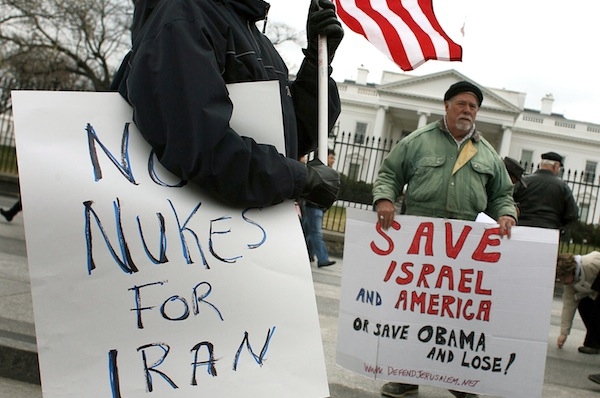The war with Iran has already been raging for many months. So far, Western powers have largely confined themselves to covert operations designed to thwart Tehran’s nuclear aspirations. However, the bombing of a bus carrying Israeli tourists in Bulgaria on Wednesday marks a dramatic escalation in hostilities.
In the past, western intelligence agencies have assassinated and kidnapped Iranian nuclear scientists, at one stage picking off a different target every few months. Not only did this hinder Iran’s quest for nuclear weapons, but it was also deeply embarrassing to the regime because of the sophistication with which attacks were being conducted right under its nose.
Further embarrassment occurred in late 2010 when Iranian nuclear computers were infected with the powerful Stuxnet virus. Ahmadinejad later conceded that the virus had caused problems with centrifuge control systems at its Natanz facility.
These covert operations are part of a broader approach officials hoped would hinder Iran’s quest for nuclear weapons, alongside diplomatic measures including sanctions and increased international pressure. The problem, of course, is that such a policy can only ever hope to decelerate Iranian progress without actually stopping it.
Indeed, just last week MI6 offered the bald assessment that Iran is only about eighteen months away from acquiring nuclear weapons. This is why talk of military action persists. The Israelis have the most pressing concerns after Ahmadinejad has repeatedly threatened to ‘annihilate’ the Jewish state, but officials in Whitehall and Washington have cause for concern too.
Almost all other nuclear powers – including even the highly unstable regimes in Pakistan and North Korea – are essentially status quo powers. That is, their acquisition of a nuclear arsenal serves primarily to boost national pride and acts as the ultimate guarantor of national sovereignty. The Iranian regime is unique. Ruled by a theocracy of robed rogues, the administration regards itself as Allah’s vicegerent on earth and is arrested with millenarian purpose.
If Iran does go nuclear the issue will not end there. It will immediately spark a nuclear arms race in the Gulf, with Saudi Arabia almost certainly wanting one of its own to curb the growth of Shia power. Unlike Iran, they won’t spend years painstakingly building one. Expect the House of Saud to simply call its longtime ally in Pakistan and buy one off the shelf. Considering Islamabad’s proclivity for proliferation, the spectre of an atomically armed Middle East in the near future is a very real one.
The killing of Israeli tourists on Wednesday could now tip the balance. Even by Iranian standards this was unprecedented. Its attempts to target Israeli interests have so far been largely focused on diplomatic and official targets such as ambassadors or embassies. The last time it successfully targeted Israeli civilians was eighteen years ago when a Jewish community centre was bombed in Argentina.
Israel may now finally lose patience with Tehran. Covert operations have inconvenienced the regime but are unable to halt its nuclear programme. Now, with Israeli civilians killed in a terrorist attack and Ahmadinejad growing in confidence, Netanyahu knows he must respond – and respond hard.






Comments